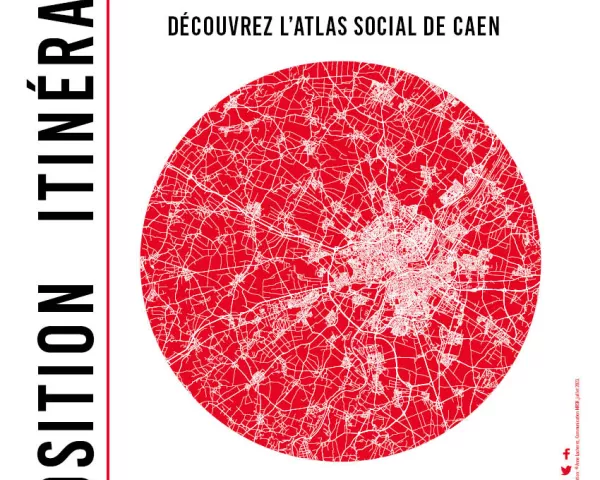Les derniers dépôts de Dima El Khouri
Negotiating space : cities in Lebanon and the challenge of the Syrian refugee influx (2011-2018) : case studies in Tripoli (Tebbeneh) and Beirut (El-Nab’a, and the Bourj el-Barajneh Palestinian refugee camp)

Ecole doctorale ED 556 - Hommes, Sociétés, Risques, Territoires
Mona Fawaz [Président]
Antoine Pécoud [Rapporteur]
Eric Verdeil [Rapporteur]
Leïla Vignal
Kamel Doraï
Dima El Khouri-Tannous. Negotiating space : cities in Lebanon and the challenge of the Syrian refugee influx (2011-2018) : case studies in Tripoli (Tebbeneh) and Beirut (El-Nab’a, and the Bourj el-Barajneh Palestinian refugee camp). Geography. Normandie Université, 2019. English. ⟨NNT : 2019NORMC010⟩. ⟨tel-02305859⟩
It is a major challenge for any nation to accommodate an influx of migrants corresponding to a quarter of its population in three years. This research seeks to understand how such a phenomenon, inconceivable at first glance, could have taken place in cities in Lebanon that have hosted over a million refugees from Syria since 2011. With this brutal phenomenon as a starting point, the thesis examines the factors that have made it possible for the urban refugees to settle in places marked by extreme processes of socio-spatial injustice. The thesis addresses this issue at three levels: (1 ) at the local urban scale, within which urban dwellers and refugees live a continuous cycle of dissymmetrical negotiations on the occupation and appropriation of their respective spaces, reflected in daily situations of tension and conflict; (2) at the national level, within which the internal geopolitics and the effects of government, local authority, and NGO actions play a direct role in influencing the access of refugees to the city; (3) finally at the international geopolitical scale which addresses the situation of the Middle East. At this scale, the analysis focuses on the effects of historical relations between Lebanon and Syria in the current settlement of refugees. Negotiating space is not seen as the result of an exclusively binary relationship between refugees and the host society. Rather, the thesis demonstrates how this relationship fits into mechanisms that produce and reproduce inequalities expressed on multiple scales, and touch all urban dwellers - whether they are originally Syrian, Palestinian, Lebanese from different religious groups, or even from a foreign country. The study is based on a qualitative ethnographic approach using a variety of methods, particularly in-depth interviews with diverse population samples. These are accompanied by systematic observations in three urban neighbourhoods: Tebbeneh in Tripoli, El-Nab'a and the Palestinian camp of Bourj el-Barajneh in Beirut.
It is a major challenge for any nation to accommodate an influx of migrants corresponding to a quarter of its population in three years. This research seeks to understand how such a phenomenon, inconceivable at first glance, could have taken place in cities in Lebanon that have hosted over a million refugees from Syria since 2011. With this brutal phenomenon as a starting point, the thesis examines the factors that have made it possible for the urban refugees to settle in places marked by extreme processes of socio-spatial injustice. The thesis addresses this issue at three levels: (1 ) at the local urban scale, within which urban dwellers and refugees live a continuous cycle of dissymmetrical negotiations on the occupation and appropriation of their respective spaces, reflected in daily situations of tension and conflict; (2) at the national level, within which the internal geopolitics and the effects of government, local authority, and NGO actions play a direct role in influencing the access of refugees to the city; (3) finally at the international geopolitical scale which addresses the situation of the Middle East. At this scale, the analysis focuses on the effects of historical relations between Lebanon and Syria in the current settlement of refugees. Negotiating space is not seen as the result of an exclusively binary relationship between refugees and the host society. Rather, the thesis demonstrates how this relationship fits into mechanisms that produce and reproduce inequalities expressed on multiple scales, and touch all urban dwellers - whether they are originally Syrian, Palestinian, Lebanese from different religious groups, or even from a foreign country. The study is based on a qualitative ethnographic approach using a variety of methods, particularly in-depth interviews with diverse population samples. These are accompanied by systematic observations in three urban neighbourhoods: Tebbeneh in Tripoli, El-Nab'a and the Palestinian camp of Bourj el-Barajneh in Beirut.
Avec les mêmes mots-clefs
- Enquête quantitative
- Méthodes des quotas
- Habitants
- ville
- climat
- Îlot de chaleur urbain
- Micro-climats urbains
- Fortes chaleurs
- Canicules
- Été 2022
- Vulnérabilités habitantes
- Exposition
- Sensibilité
- adaptation
- santé
- Seuil de tolérance
- stratégies adaptatives
- Espaces refuges
- Résilience
- Inégalités socio-spatiales
Habitants des villes et fortes chaleurs : vulnérabilités, vécus, impacts santé, ...
- Enquête quantitative
- Méthodes des quotas
- Habitants
- ville
- climat
- Îlot de chaleur urbain
- Micro-climats urbains
- Fortes chaleurs
- Canicules
- Été 2022
- Vulnérabilités habitantes
- Exposition
- Sensibilité
- adaptation
- santé
- Seuil de tolérance
- stratégies adaptatives
- espaces
- refuges
- Résilience
- Inégalités socio-spatiales












